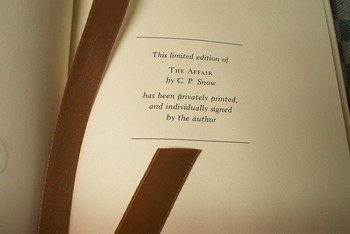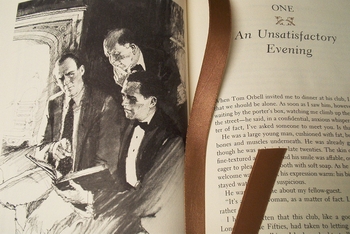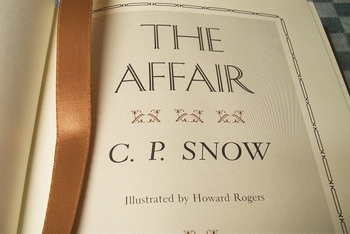Franklin Library C. P. Snow books
A Coat of Varnish - limited first edition (not signed) - 1979The Affair - signed limited edition - 1981
C. P. Snow biography
Charles Percy Snow, known as C. P. Snow, was a prominent English novelist, scientist, and government administrator, born on October 15, 1905, in Leicester, England. He passed away on July 1, 1980, leaving behind a legacy that spanned literature, science, and public service. Snow was born into a modest family and showed exceptional academic prowess from a young age. He attended the University of Leicester and later won a scholarship to study at the University of Cambridge, where he graduated with a degree in chemistry in 1928. His scientific background greatly influenced his later works and his views on the relationship between science and society. Following his studies, Snow embarked on a career in science, specializing in physics and gaining recognition for his research in various scientific fields. However, it was his literary achievements that would ultimately bring him widespread acclaim. He began writing novels, essays, and plays, showcasing a keen insight into the complexities of human nature and society.Snow's most famous literary accomplishment came with his series of novels collectively known as the Strangers and Brothers sequence, which comprised eleven novels exploring the worlds of academia, politics, and industry. These works, including The Masters and The Corridors of Power, earned him critical acclaim and a devoted readership.
In addition to his literary pursuits, Snow was deeply involved in public service. He held several important government positions, including serving as a scientific adviser during World War II and later as a government official in various capacities, where he championed the importance of science and education in shaping public policy. One of Snow's most enduring contributions to intellectual discourse is his concept of the Two Cultures, which he famously outlined in his Rede Lecture titled The Two Cultures and the Scientific Revolution in 1959. In this lecture, Snow lamented the growing divide between the sciences and the humanities, advocating for greater integration and understanding between the two disciplines.
Throughout his life, C. P. Snow remained a passionate advocate for the pursuit of knowledge and the importance of bridging the gap between different fields of study. His legacy continues to inspire scholars, writers, and policymakers alike, reminding us of the enduring value of interdisciplinary thinking and the pursuit of truth.






Comments
Post a Comment
Share your best book review and recommendation